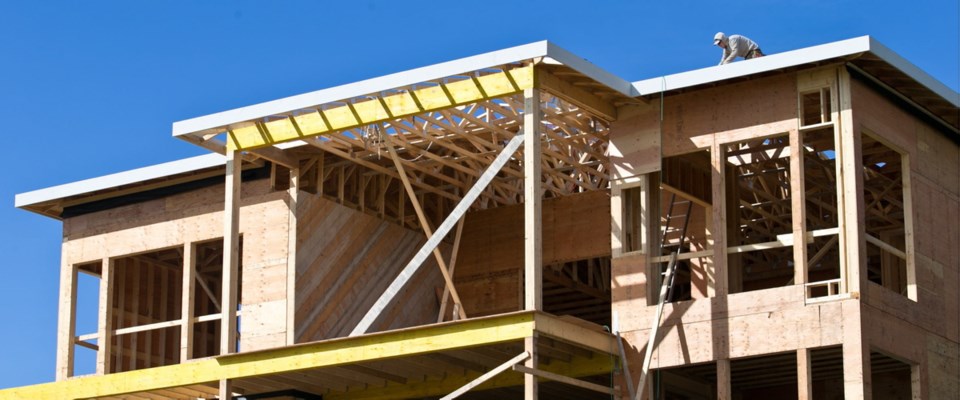A B.C. budget move designed to open up the Vancouver housing market could stimulate homebuilding in Victoria and improve affordability for buyers.
The province announced changes Tuesday to the property transfer tax, including an exemption from the tax when buying new homes worth up to $750,000.
That change was designed to stimulate the supply side of the housing equation and establish more options, especially in places like Vancouver, which, according to budget documents, has seen single-family homes increase in price between 45 per cent and 70 per cent over the last five years.
The current property transfer tax is set at one per cent on the first $200,000 and two per cent on the remaining price. Buyers of older homes will continue to pay the property purchase tax at current rates.
In Victoria, the effect of the change is likely to be less pronounced, though it should mean an increase in homebuilding activity and easier access to new homes, said Casey Edge, executive director of the Victoria Residential Builders Association.
“This will be a significant improvement in housing affordability,” said Edge. “B.C. has the highest average price in Canada for a home by more than $200,000 so housing affordability is a critical issue. The property transfer tax has been a significant hurdle so a reduction is an improvement.”
A survey of member builders last year pegged the cost of a small basic new home at $562,000 on the West Shore.
Victoria Real Estate Board president Wendy Moreton said the new rules appeared to be aimed at the Vancouver market.
“This will help some buyers but it would have been nice to see some adjustment to the property transfer tax on existing home sales, that’s what we were hoping to see,” she said. “But we can hope that now they’ve made a change, they could make future changes.”
Finance Minister Mike de Jong told reporters he hoped the changes to the property transfer tax will stimulate building and provide more opportunity for first-time buyers to get into the housing market.
A purchaser of a new home worth $400,000 would save $6,000 in property transfer tax, while the exemption means a savings of $13,000 in tax on a new home or condo priced at $750,000.
To get the full exemption, a purchaser must live in the home as a principal residence for one year.
B.C. Real Estate Association chief economist Cameron Muir said the changes were positive, but cautioned it could take some time to see the effect. “It will likely stimulate some new construction, but, unfortunately, for places like Vancouver, major condo projects take many years from inception to completion so the impact of that supply will not be immediate.”
Gord Stewart, senior vice-president of the Independent Contractors and Businesses Association, suggested buyers, scared off by an over-heated market, might start to look at jumping in. “We think [government] has done exactly the right thing. It’s a market-based approach and reducing the cost of a new house is going to encourage more people to get into the market and it will bring some supply on.”
The measure means the province could lose an estimated $75 million in tax revenue. That money is expected to be offset with the addition of a third tier to the property transfer tax — the rate of tax applied to sales of properties valued at more than $2 million will increase to three per cent from the current two per cent.
The government also announced it will collect information to determine who is buying property in B.C. and if foreign buyers are having an inflationary effect. Starting this year, people who buy property will have to identify themselves as Canadian citizens or permanent residents, and if they are not they will need to divulge their citizenship and country of residence. The government stopped collecting that data in 1998.
De Jong would not get into details of what the government might do if the information shows high levels of foreign ownership. It is about getting more information to help explain the sharp rise in prices in some areas of the province, he said.



